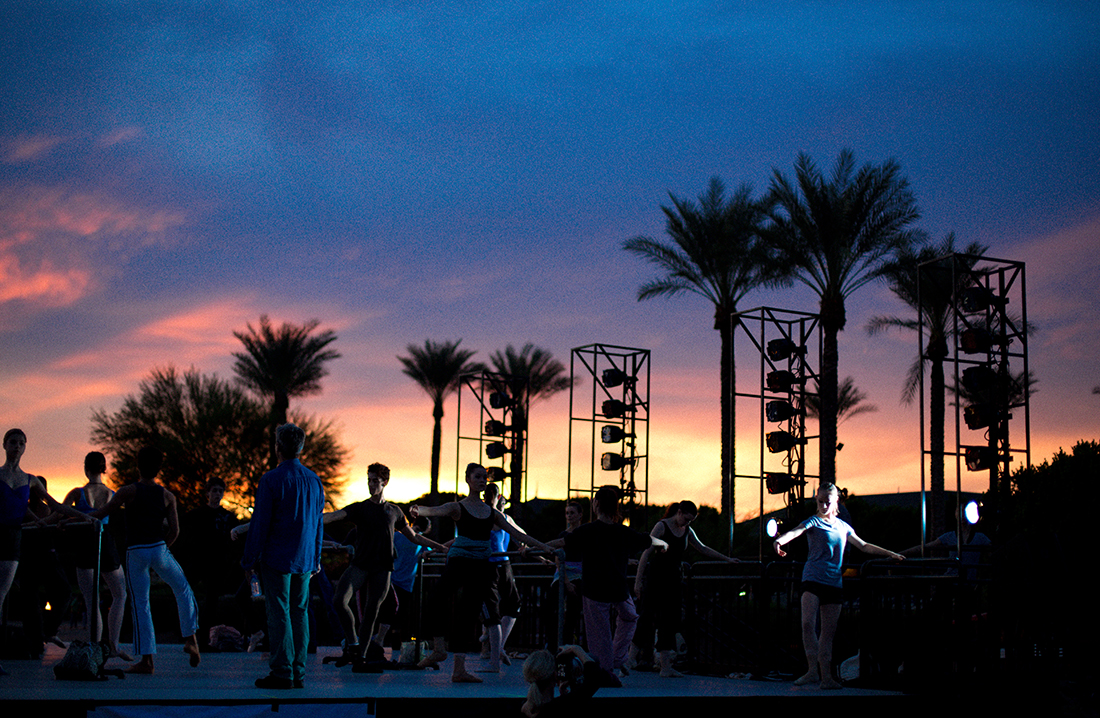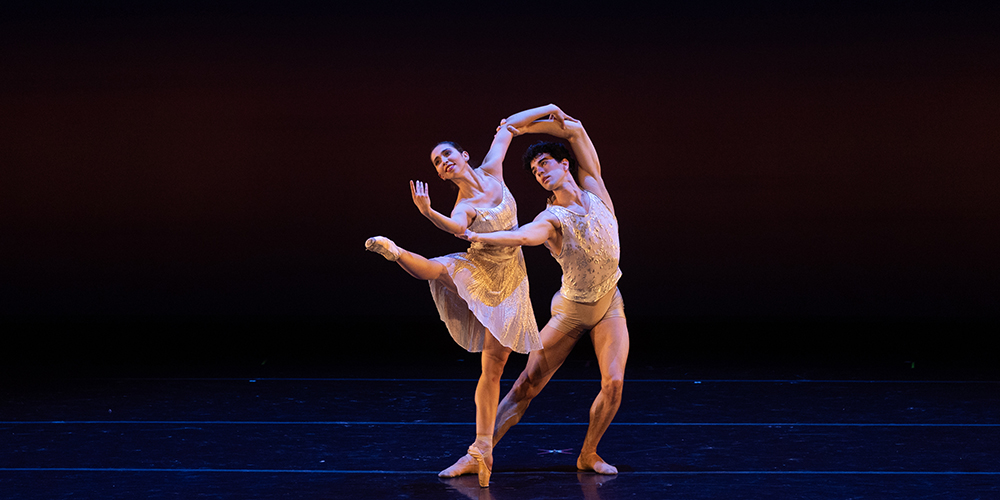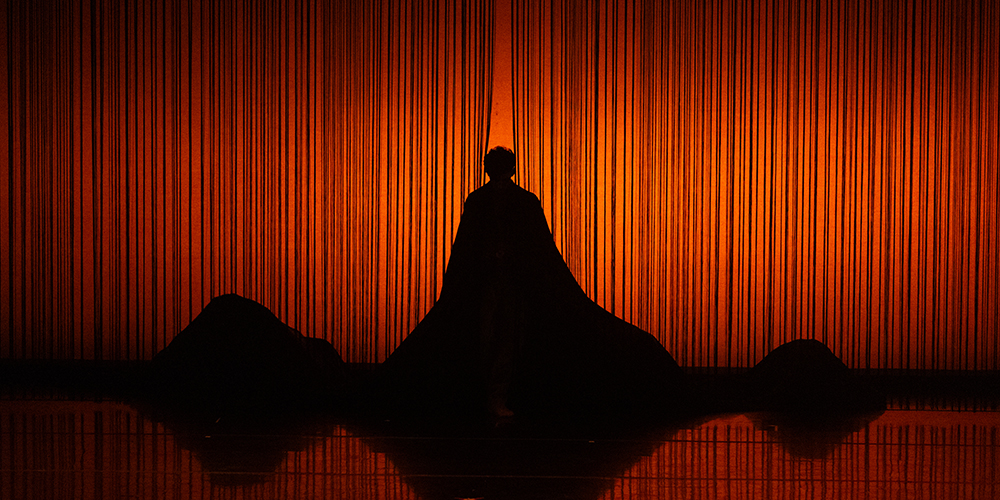25 April 2019
10 Things You Should Know About All Balanchine
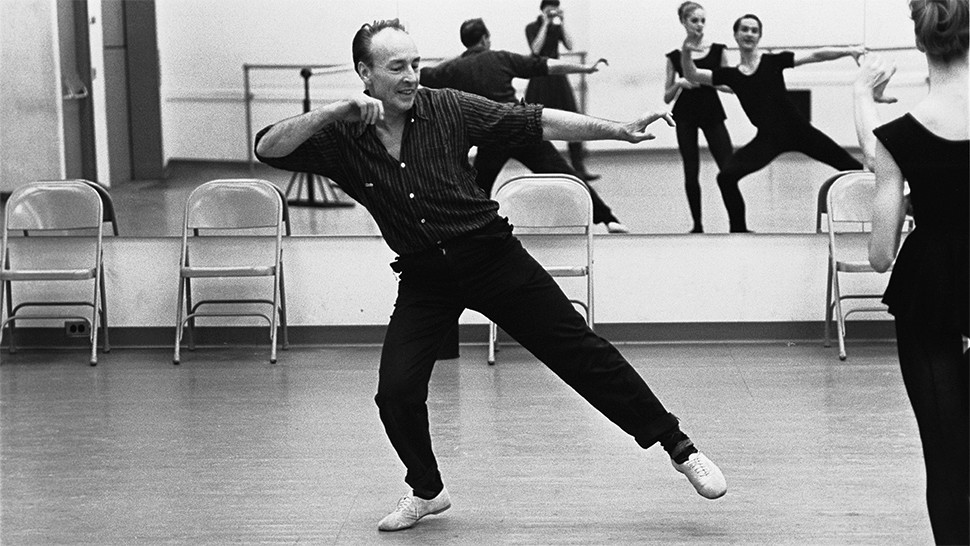
-
Over the course of his lifetime, Balanchine is credited with creating 465 ballets. He choreographed his first ballet La Nuit in 1920 at the age of 16.
-
He was enrolled in the Imperial Theater Ballet School in St. Petersburg as a child and credits his first role as a cupid in Marius Petipa’s The Sleeping Beauty as the inspiration for his career in ballet.
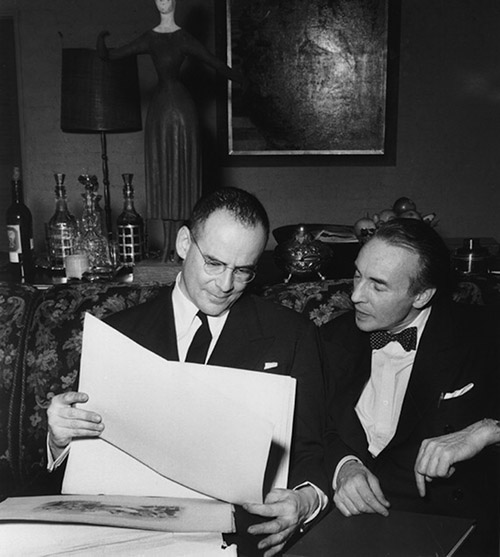
Lincoln Kirstein and George Balanchine. © The George Balanchine Trust. -
Balanchine’s father was a composer which gave him a knowledge of music that exceeded most of his fellow choreographers. In addition to ballet school, he was also enrolled at St. Petersburg Conservatory of Music and studied piano, musical theory, and composition.
-
In 1933, Lincoln Kirstein, an American writer, impresario, art connoisseur, philanthropist, and cultural figure in New York City, met Balanchine in London and invited him to come to the United States and establish an American ballet school and company. In 1934, Kirstein and Balanchine established the School of American Ballet and, a year later in 1935, established the American Ballet, later re-christened the New York City Ballet in 1948.
-
Balanchine is credited as being the “Father of American Ballet” and was instrumental in paving the way for ballet to flourish in America. He is one of the foremost representatives of the neoclassical style and is well-known for his modern-yet-classical, clean aesthetic. Balanchine built upon the traditional classical ballet vocabulary by extending lines and positions, playing with speed and freedom of movement, and incorporating new positions outside of the ballet vocabulary.
-
Balanchine’s ballet Jewels, which includes Diamonds, Emeralds, and Rubies that are normally all performed separately, is considered the first full-length abstract ballet. According to Balanchine the ballet has nothing to do with jewels, the dancers are just dressed like jewels. When asked what Rubies was about, he reportedly said, “It’s about twenty minutes.”
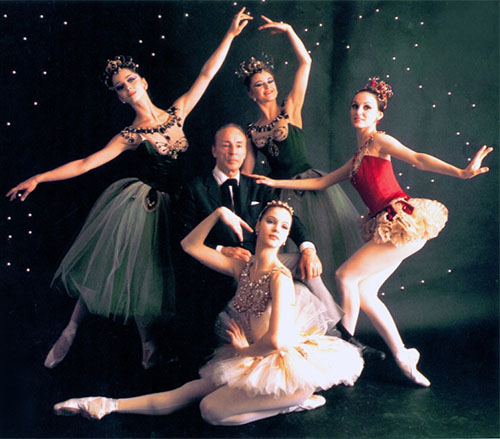
George Balanchine with his ballerinas Mimi Paul, Violette Verdy, Patricia McBride, and Suzanne Farrell. Choreography by George Balanchine © The George Balanchine Trust. -
Jewels is one of the first plotless ballets to be done by Balanchine, although united by an overarching abstract theme. The ballet is more about different facets of classical ballet technique as demonstrated by the American style (Rubies), the French style (Emeralds), and the Imperial Russian style (Diamonds.)
-
Theme and Variations is an ode to classical ballet. Balanchine intended it “to evoke that great period in classical dancing when Russian ballet flourished with the aid of Tchaikovsky’s music.”
-
When Square Dance first premiered in 1957, the musicians were placed on the stage, and a square dance caller was brought in to call out the steps.
-
Balanchine often wrote about how various forms of dance can be traced back to folk dance. While folk and ballet differ in style, he found that they had common roots. Set to music by Italian composers, Antonio Vivaldi and Arcangelo Corelli, Square Dance combines a traditional, baroque score with quick footwork that reminds us of a Do-si-Do!




